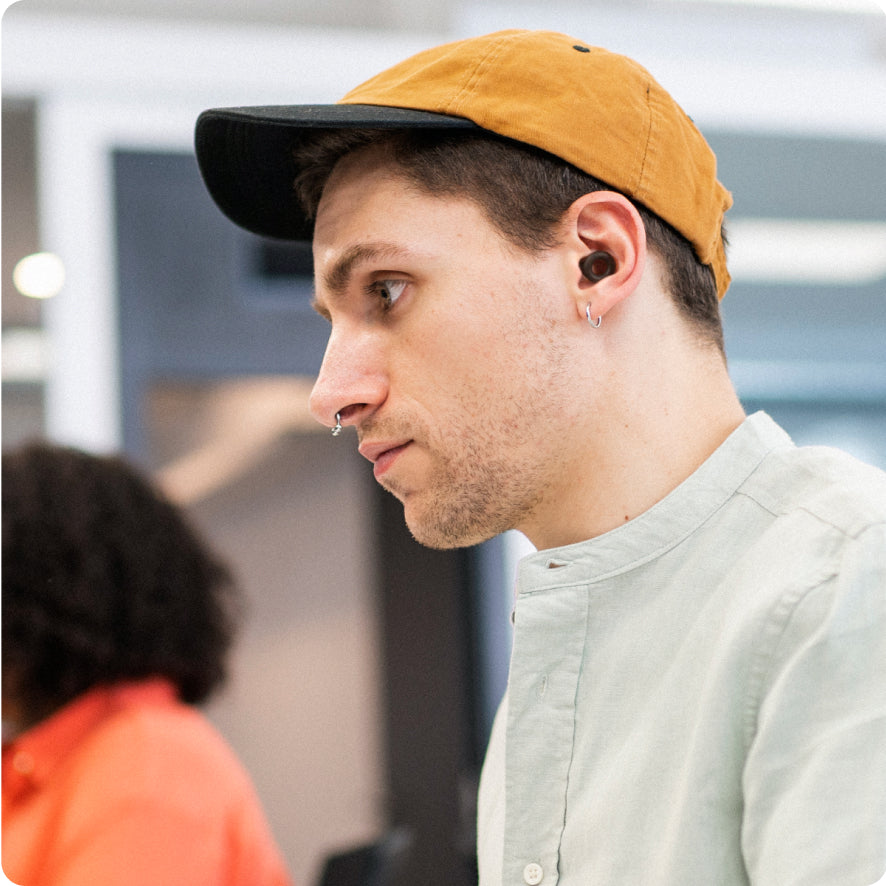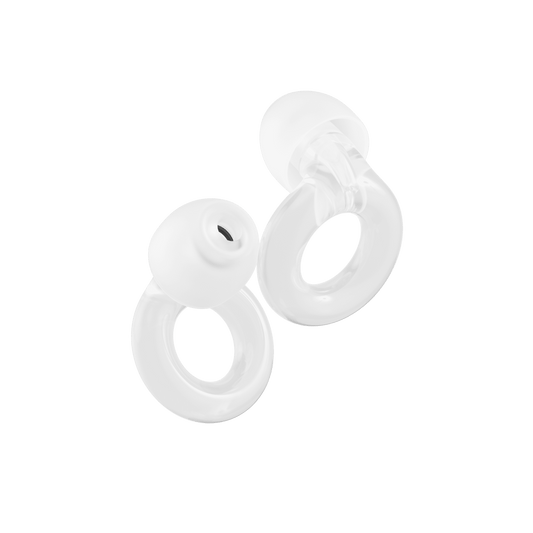Key takeaways:
- Noise-reducing earplugs are essential for combating everyday noise and protecting hearing health.
- Consider factors like Noise Reduction Rating (NRR), comfort, ease of use, durability, and compatibility with activities when choosing earplugs.
- Ensure proper fit and cleanliness for safety and effectiveness.
- Invest in high-quality, reusable earplugs for long-term savings and protection.
- Seek recommendations, read reviews, and consider industry certifications for informed decision-making.
‘Every little noise at night keeps me awake’.
‘I love live music - the louder the better’.
‘I’d just like my life to be a little quieter’.
Any of those sound familiar?
If so, it sounds like ear protection could be the right way forward.
The thing is, the world we live in is a loud one. Full of noisy activity that is often on our doorstep and invades our daily environment. Noise is part of our working life, our social lives, and even when we’re trying to get some much-needed sleep, it’s disturbing us there, too.
Add to that the fact that people have different tolerance levels. As unique human beings, we not only see the world differently, but we hear it differently, too. And as life takes us down our own individual paths, we experience life in different ways. Our jobs, our locations, our home situations, our own unique needs.
Sometimes all we want is for life to be a bit more peaceful. To get our own space and quiet from the world. Or to keep our ears protected from loud noises in environments like concerts, festivals , night clubs and sporting events.
Whatever the reason may be that you want to reduce the volume, one thing remains - help is out there. And it comes in the form of noise-reducing earplugs.
So whether you need a break from your partner’s incessant snoring or you’re looking to protect your ears when flying, noise-reducing earplugs will help you live your life the way you want to.
Factors to consider when choosing noise reduction earplugs
From earplugs noise reduction rating to comfort and fit, there are several things you should think about when choosing the best noise reduction earplugs for you.
Noise Reduction Rating (NRR):
Noise Reduction Rating (NRR) is important when it comes to earplugs. It’s a rating that quantifies the effectiveness of earplugs in reducing noise exposure, showing how much the earplugs can reduce noise by when used properly – a figure that’s expressed in decibels (dB). A higher NRR indicates greater noise reduction. For example, if you’re in an environment that has 85 decibels of noise, and you use earplugs with a NRR of 20 dB, your noise exposure could be reduced to 65 decibels.
It’s important to consider what types of environments you’ll be in, and choose earplugs with an appropriate NRR in order to reduce noise levels to a more appropriate level. For example, a loud concert will probably require more noise reduction than sleeping on a noisy street. Always consider the noise level and personal comfort when choosing earplugs for optimal noise reduction and hearing protection.
Comfort and fit:
You want to find earplugs that offer the maximum amount of comfort, and that don’t fall out.
There’s nothing more annoying than being fast asleep and continuously waking up to pop a fallen earplug back in. Or dancing your heart away at a nightclub, only to feel discomfort because your earplugs aren’t inserted properly.
Noise reduction earplugs can help. But it’s important to get the right fit for you all-fitting or uncomfortable earplugs can lead to irritation and pain, and may not provide the right levels of noise reduction.
Different earplug materials offer varying levels of comfort. Foam earplugs conform to the shape of the ear canal, providing a snug fit – but they’re disposable and usually block out noise rather than simply reducing it. Silicone ear tips are super comfortable and when you choose the right ones, they filter noise rather than blocking it out so you can still hear everything that’s going on – just at a lower volume.
To find the right size and shape for individual ear canals, it's essential to experiment with different options. Start with a small size and gradually move up until you find the most comfortable fit.
Ease of use:
Since you’re not likely to be wearing your earplugs all the time, it’s important to choose a pair that are easy to insert and remove. Loop Earplugs are easy to insert, thanks to the Loop that makes it easy to get them into just the right position.
It’s also easier to insert earplugs when you get ones that are the correct size for your unique ears. Look out for flanged or tapered designs that are easy to insert, or opt for earplugs with a choice of different ear tip sizes.


Durability and reusability
We’re living in a world where sustainability matters. Gone are the days of throwaway, cheap, disposable earplugs. It’s all about searching for products that are reusable, sustainable, and kind to the environment. In times like these, it’s important that we all do our bit to make a positive impact on the world.
10M+ happy customers
With reusable earplugs for noise reduction, you can feel happy you’re making a green decision.
Reusable earplugs are designed to be able to withstand wear and tear, so you can wear them everywhere from your daily commute to the noisy coffee shop, and from watching your favorite team play to a week-long festival. Wherever you wear them, they’ll be up to the job – and will keep your ears protected from loud noises in any situation!
To prolong their lifespan, it's essential to clean and maintain earplugs regularly. You can clean silicone earplugs like Loop Quiet with soapy water and a damp cloth – and it’s okay to submerge them in water – while earplugs with a special filter, like Loop Engage and Experience shouldn’t be submerged. Instead, just carefully wipe the ear tips and Loop with soapy water and a damp cloth to keep them fresh. We recommend replacing the ear tips after 3-6 months to maintain good hygiene.
Compatibility with activities:
There are lots of different reasons why people wear noise reduction earplugs, including:
Noise sensitivity
If you’ve ever endured feelings such as distress, anger, or panic attacks due to unwanted noise, chances are you have noise sensitivity. Noise sensitivity affects everyone differently. And whether your trigger is finding construction outside your office window unbearable, or struggling with the sound of loud chewing, noise-reducing earplugs are there to help.
Noise sensitivity is often linked to other lived experiences, such as autism, ADHD and misophonia, which can mean you have heightened levels of noise sensitivity.
To help with sleep issues
Noise-reducing earplugs are well-known to help with sleep disorders such as sleep apnea or insomnia. Not to mention the infuriating sound of rhythmic snoring when you’re trying to sleep.
Whatever the reason, these earplugs are designed to help with sleep issues and block out all that unwanted noise, allowing you to get that much-needed snooze time.
Parenting
Children make a lot of noise. Fact. Whether they’re playing, crying, laughing, even eating. There’s never a dull moment.
With many more parents finding working from home a more permanent fixture in their lives, noise reducing earplugs are a must.
And let’s face it, even if work isn’t the issue, sometimes parents just want to have a bit of peace. A quiet moment amid the chaos, without missing anything important.
Flying
Not only are planes loud, but the air pressure also involved in the process can actually cause damage to your ears.
Wearing noise-reducing earplugs when flying will not only reduce the noise of the passengers and engine, but they’ll also work to equalize the air pressure inside and outside of your ear. When the cabin air pressure changes rapidly, earplugs will help to restore the balance you need to avoid ear damage.
Protection from loud music
Music is a huge part of many people’s lives. Whether you work in the industry or enjoy live music regularly, being exposed to that level of noise isn’t good for your hearing. In fact, it can cause permanent damage.
This is why many musicians and live concert-goers find themselves in trouble with their hearing early in life, suffering with conditions such as tinnitus. Earplugs can help to mitigate the effects, by blocking out the unwanted noise, but allowing you to still hear the music, just less loud.
Whatever your lifestyle is like, it’s important to find earplugs that suit your needs. If you’re looking for protection from loud noises at concerts but still want to be able to hear everything that’s happening, traditional foam earplugs aren’t the best choice. They tend to muffle noise, meaning you won’t get crystal clear sound. In that case, earplugs like Loop Experience 2 are a better choice. They filter noise rather than blocking it out, meaning you can still hear everything perfectly – just at a lower volume.
If you want to reduce loud noise at work, but still need to communicate clearly, you may prefer earplugs that reduce the occlusion effect – that is the echoey head underwater feeling you sometimes get with traditional earplugs. That’s exactly what Loop Engage 2 are designed to do, offering discreet relief from everyday noise for more clear and focused conversations.
Additional considerations for earplugs buyers
If you want to buy the best noise reduction earplugs for you, there’s a lot to think about! Here are some additional considerations when weighing up the options.
1) Hygiene and safety:
If you’re going for reusable earplugs, it’s important to keep them clean. Earplugs can accumulate dirt, wax and bacteria over time, leading to potential ear infections. Luckily, it’s easy to keep them clean by simply using soapy water and a cloth. Simply wipe clean to remove any dirt and bacteria, then leave to dry thoroughly before storing them.
Store your earplugs in a clean, dry case to keep them clean and prevent contamination from external sources. You should also regularly inspect your earplugs for signs of wear or damage, and replace them as needed to maintain their effectiveness and safety.
2) Cost-effectiveness:
Traditional foam earplugs are cheap and cheerful – but high-quality reusable earplugs are a better investment in the long run. Reusable earplugs last longer than the throw-away kind, so you need to buy them less often as you can use them over and over again.
Plus, Loop Earplugs offer a two-year warranty on our products, so you have even more peace of mind that they’ll offer ear protection for any situation.
3) User reviews and recommendations:
Word of mouth is a great way to find out which earplugs your friends and family recommend – and reading reviews also offers good insights into the pros and cons of different earplugs.
Industry certifications and awards also provide some insight into what earplugs those in the know recommend. Loop Earplugs has, for example, won a Red Dot Award, with the panel stating: “The jury was impressed by the use of a patented acoustic channel in combination with a newly developed filter to block unwanted frequencies of up to 16 dB.”
Final thoughts:
Choosing the right noise-reduction earplugs is crucial for protecting your hearing health, so it’s important to take various factors into account like comfort, fit, durability, and effectiveness when making your selection.
Remember, investing in high-quality, reusable earplugs may cost more upfront but offers long-term savings and better protection. But remember – everyone is different, so it’s important to choose noise reduction earplugs that meet your individual needs and preferences.

News Year’s noise? Holiday anxiety? There’s a Loop earplug for that.
Earplugs that help deal with anxiety during the holidays. From loud fireworks to loads of family time, to sleeping be...

How to overcome the effects of noise in the workplace
With offices sometimes registering noise between 60-65 dB, reducing the impact of regular exposure to workplace noise...

The real effects of noise pollution and how to combat it
What is noise pollution? Simply put, noise pollution is the spread of unwanted sounds or disturbances in the environm...
















